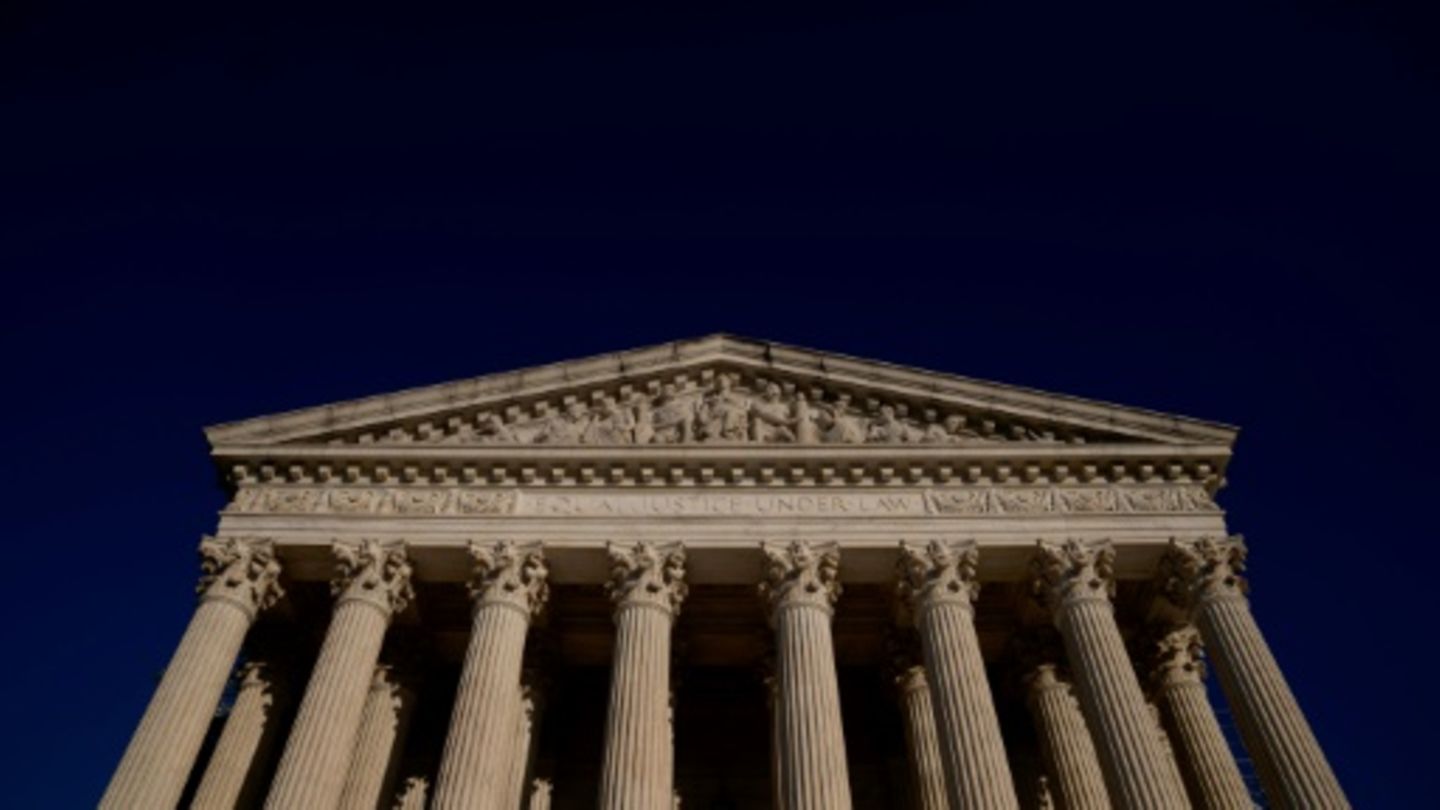The US Supreme Court appears to have reservations about former President Donald Trump's demand for “absolute presidential immunity” against criminal prosecution. This is what the statements made by both liberal and conservative judges in a Supreme Court hearing on Thursday in Washington suggest. However, the conservative judges, who have a majority of six of the nine seats on the Supreme Court, appear to be in favor of partial immunity for ex-presidents.
The skepticism even among the conservative constitutional judges towards Trump's demand for immunity for all of his previous official acts became clear in statements that the requested supreme court decision would extend far beyond Trump and generally define the presidency. “We are writing a rule for the ages,” said conservative Justice Neil Gorsuch. This case has “enormous implications” for the future of the presidency and the country, said his colleague Brett Kavanaugh.
The Supreme Court's decision is expected around the end of June. Trump, who wants to run again in the presidential election in November, is the first ex-president in US history to be criminally charged – in four different cases. His immunity request primarily relates to special counsel Jack Smith's indictment in federal court in Washington regarding his attempts to retroactively overturn his 2020 election defeat against now-President Joe Biden.
The right-wing populist has already achieved partial success with the Supreme Court deciding to deal with his request for immunity. This led to a suspension of his Washington trial, which was scheduled to begin in early March. Despite the clear conservative majority on the Supreme Court – three of the justices, including Gorsuch and Kavanaugh, were nominated by Trump himself – Trump is by no means guaranteed the success of his application.
However, at least four of the conservative constitutional judges apparently support partial immunity for former presidents. Supreme Court Chairman John Roberts said he had “concerns” about a federal appeals court’s decision that completely rejected Trump’s immunity request.
“The way I read it, it simply says, 'A former president can be prosecuted for being prosecuted,'” Roberts said of the decision. He hinted at the option of sending the case back to the lower court. This would result in another significant delay in the Washington trial, which is also set to examine Trump's role in the storming of the Capitol in January 2021, meaning that trial would likely not begin before the election.
The three liberal constitutional judges spoke out clearly against “absolute immunity” in the hearing. “Wouldn't there be a significant risk that future presidents would be encouraged to commit crimes with abandon?” Judge Ketanji Brown asked Jackson. Her colleague Elena Kaga asked whether a president who reveals nuclear secrets to an enemy country or orders a military coup should also be protected from prosecution.
The special counsel's legal representative, Michael Dreeben, warned that “absolute immunity” would protect ex-presidents from prosecution for “bribery, treason, sedition and murder.” Trump's lawyer John Sauer, however, argued that immunity protects the president from “blackmail by his political rivals.”
Trump himself did not take part in the hearing – this was forbidden to him by the judge in the New York criminal trial regarding a hush money affair. This court case began last week. The 77-year-old Republican said on Thursday on the sidelines of the hush money trial at the simultaneous Supreme Court hearing: “I would have loved to have been there.”
The case surrounding the cover-up of a hush money payment to porn star Stormy Daniels is the only one of Trump's four criminal cases in which trial has begun so far. In the remaining three cases, it is completely uncertain when the trials could begin.
In addition to the indictment pending in federal court for conspiring against the 2020 election, the ex-president is also charged by Georgia state prosecutors with attempted election manipulation, and an indictment for taking secret government documents to Trump's private estate is also pending in federal court in Florida.
Trump is relying on delaying tactics in his legal disputes. If he returns to the White House, he could instruct federal prosecutors to drop the two charges against him for election conspiracy and the documents affair.
dja/kas

